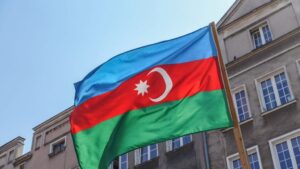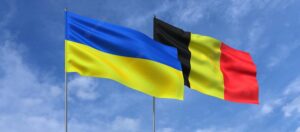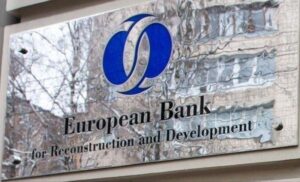
Irish Minister for Foreign Affairs and Trade Helen McEntee approved on Thursday the allocation of EUR 25 million from the country’s budget to the Ukrainian Energy Support Fund (UESF) to assist Ukraine’s critical energy infrastructure, according to the Irish government’s website.
“Ireland is providing EUR 25 million to the Ukraine Energy Support Fund to help Ukraine restore light and heat to people’s homes at a time when they are facing harsh winter conditions. We once again call on Russia to stop these attacks on the civilian population and civilian infrastructure,” McEntry said in Brussels, where she is attending a meeting of the Foreign Affairs Council.
The statement notes that this contribution comes at a time when civilians across Ukraine are suffering from prolonged power, heating, and water outages due to repeated Russian attacks on energy infrastructure, with winter temperatures dropping below -20 °C and many regions of Ukraine are experiencing their harshest winters in recent years.
“The people of Ukraine continue to suffer greatly. These attacks on civilian energy infrastructure have left people without heating at a time when Ukraine is facing freezing conditions. This contribution of EUR 25 million to the Ukraine Energy Support Fund is an important demonstration of Ireland’s continued support for Ukraine. We are determined to do everything we can to alleviate the suffering that Russia is causing in this dark and cold winter. This funding complements Ireland’s existing humanitarian and development contributions to Ukraine,” said Irish Minister of State for International Development and the Diaspora Neil Richmond.
He said Ireland would continue to support Ukraine for as long as necessary while Russia’s aggressive war continues, as well as on the road to recovery and reconstruction.
“Today’s announcement fulfills the commitment made by the government during President Volodymyr Zelenskyy’s visit to Ireland last December to support the restoration and protection of Ukraine’s energy infrastructure,” the statement said.

Ukraine received a new batch of humanitarian aid from Azerbaijan to restore energy infrastructure damaged during the armed conflict, according to Ukrainian and Azerbaijani press services.
The aid consists of the supply of electrical equipment worth $2 million, approved by a decree of the President of the Republic of Azerbaijan, Ilham Aliyev, dated August 11, 2025, with funds from the presidential reserve fund and the 2025 state budget. The equipment includes generators, transformers, and electrical cables manufactured in Azerbaijan.
The first batch of aid — about 10 trucks sent from the Sumgait Technology Park — contains about 90,000 meters of electrical cables, 25 generators, and seven sets of transformers. They are intended to restore stable power supply in regions of Ukraine destroyed by Russian strikes.
Ukrainian President Volodymyr Zelensky and Azerbaijani President Ilham Aliyev discussed energy cooperation and interaction with the US and European partners during a telephone conversation on August 10. The parties emphasized that the assistance is based on the principles of humanism and partnership enshrined in bilateral agreements, including the 2000 Treaty on Friendship, Cooperation, and Partnership and the 2008 Declaration on Strategic Partnership.
Diplomatic relations between Ukraine and the Republic of Azerbaijan were established on February 6, 1992, when Azerbaijan officially recognized Ukraine’s independence. The Ukrainian Embassy in Baku began operating in 1996, and the Azerbaijani Embassy in Kyiv in 1997.

The Ministry of Energy of Uzbekistan and the Afghan state energy company Da Afghanistan Breshna Sherkat (DABS) have signed agreements on infrastructure development worth a total of $243 million.
In particular, the following major projects have been approved:
During the ceremony, DABS CEO Abdul Bari Omar called these four agreements vital for ensuring a reliable power supply in Afghanistan.
An agreement was also signed between DABS and Uzbek companies for the supply of electricity for a period of 10 years.
For reference: Uzbekistan has been supplying electricity to Afghanistan since 2002. Last December, Uzbekistan extended its agreement to export electricity to Afghanistan until 2025. Afghanistan imports 80% of its electricity from Uzbekistan, Tajikistan, Turkmenistan, and Iran, with the rest produced domestically.

Denmark will allocate 130 million Danish kroner (about $19.4 million – IF-U) to Ukraine to restore energy infrastructure damaged by Russian attacks, the Danish government’s press service reports.
The aid was announced by Minister of Climate, Energy and Supply Lars Oagard during a meeting with US Secretary of State Anthony Blinken and Ukrainian Foreign Minister Andriy Sybiga at the G7 Working Group on Ukraine’s Energy Security.
“Not only is Putin’s army invading Ukraine’s borders, Russia is violating the rules of war by launching massive attacks on Ukraine’s electricity and heat supply. Winter is just around the corner, and many Ukrainian homes will be left without heat and electricity. And that’s not all, ordinary employees of the energy sector who work tirelessly at their jobs are being targeted. We must do everything we can to make the Ukrainian energy system as resilient as possible,” said Oagard.
The Danish donation is funded by the Ministry of Foreign Affairs and will, among other things, support emergency measures and the procurement of equipment and spare parts to help restore security of supply. The support is provided in cooperation with UNDP, the Energy Community, the Danish Refugee Council and the Danish Red Cross.

Belgium will allocate an additional 9 million euros in aid to Ukraine to repair its damaged energy infrastructure, Belgian Minister of Development Cooperation Caroline Genne said on Friday.
“Ukraine’s energy infrastructure is old and too centralized, which makes it very vulnerable,” the minister said, as quoted by RTBF.
The 9 million euros will be channelled through the United Nations Development Program (UNDP), which has organized a system that allows for the rapid procurement of spare parts and the supply of new equipment to repair damaged or destroyed infrastructure. In doing so, UNDP “emphasizes sustainable and decentralized energy sources,” Genne explained.
According to her, “Together with military assistance, this support will help strengthen Ukraine’s resilience.”

The European Bank for Reconstruction and Development (EBRD) has approved a financing package under which NPC Ukrenergo will be allocated EUR 372 million to support urgent repair of damage caused by Russian bombing of civil energy infrastructure.
According to the bank’s press release, the company will be provided with a state-guaranteed loan of EUR 300 million, as well as a grant of EUR 72 million from the Netherlands.
In particular, EUR 150 million is provided for the purchase of equipment for emergency recovery work, another EUR 150 million is provided for the support of the capital structure of the NPC. Separately, part of the emergency repair loan will be supplemented by a grant from the Netherlands.
“This will be blended into a single EUR 372 million package to support the immediate transmission infrastructure restoration needs of Ukrenergo,” the EBRD said.
The Bank says that EBRD investments in Ukraine are made with the support of donors and partners. The United States of America, which has contributed $500 million to the EBRD’s Crisis Response Fund and is strongly committed to addressing to the impact of the war on Ukraine, will support up to 50 per cent of the EBRD’s loan with a funded guarantee.
“Urgent repairs on Ukraine’s electricity network is an immediate priority for the EBRD. The Ukrainian people and businesses need continued access to electricity to go through the winter. With this important financing, we will help Ukrenergo perform swift emergency repairs of damaged equipment, high voltage substations and transmission lines. It will ensure the continued provision of vital power transmission services during the heating season for Ukrainian households, businesses and communities,” said EBRD President Odile Renaud-Basso.
“The EBRD condemns in the strongest possible way the unprovoked and unjustified Russia-led war on Ukraine and especially the strikes on civilian infrastructure,” the message reads.